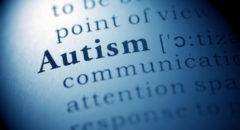
Frontotemporal dementia (FTD) is a rare and progressive form of dementia that primarily affects people between the ages of 40 to 65 years old. With the recent diagnosis of Wendy Williams, BlackDoctor.org sat down with Donna Newsome, M.D., a neurologist at Texas Health Presbyterian Hospital Plano to discuss how FTD differs from other forms of dementia, such as Alzheimer’s disease and the early warning signs and diagnosis process. She also discusses the genetic factors associated with FTD and offers practical advice for caregivers.
Could you explain what primary progressive aphasia and frontotemporal dementia are and how they differ from other forms of dementia?
Primary progressive aphasia and frontotemporal dementia affect the brain’s functions, specifically memory and judgment. These conditions damage the nerves and connections in the brain, particularly in the frontal and temporal lobes. Depending on the type of dementia, it can impact different areas of the brain. For example, primary progressive aphasia primarily affects language skills, while frontotemporal dementia affects behavior and personality. People with these conditions may experience difficulty communicating, changes in personality and behavior, and challenges with cognition and memory.
You mentioned that people with these conditions don’t usually experience memory problems in the beginning. Are there any early warning signs or red flags that people can look out for?
It’s common for some individuals to appear more apathetic or withdrawn, leading family and friends to suspect they may be depressed. Changes in personality can also be misinterpreted as other issues. Sometimes, individuals themselves may not recognize the changes, attributing them to normal aging. However, these could be early signs of dementia.
What is the diagnosis process?
The diagnosis process for dementia involves various assessments and tests. There isn’t a single test for diagnosing dementia. Doctors typically rely on a combination of medical history, physical exams, neurological exams, and cognitive tests. Imaging tests like MRI can help identify brain changes associated with dementia, but the diagnosis is usually based on a comprehensive evaluation of symptoms and test results by a healthcare professional.
A significant percentage of cases are genetic. Could you talk about the importance of individuals knowing their family history and being diligent about their brain health?
It’s important to be aware of your family history, especially regarding conditions like high blood pressure, diabetes, cholesterol issues, and dementia. Knowing your family history can help you prepare for potential health challenges. While there’s currently no cure for frontotemporal dementia, understanding your family’s health background can help you recognize early symptoms and seek appropriate care.
Living with dementia presents various challenges, including personality changes and cognitive impairment. Family support is crucial, as they can help navigate therapies like speech and occupational therapy to stimulate cognitive function. Planning for the future, such as arranging legal documents like wills and powers of attorney, is also important. Frontotemporal dementia often affects individuals in the 40 to 60-year-old range, so it’s wise to prepare for potential challenges, even as you age.
Since there is no cure for these conditions, what are some of the challenges people may face in their day-to-day lives, and are there any tips or tools for them to navigate those challenges?
It’s crucial for caregivers to have their own support system, as caring for someone with dementia can be overwhelming. Seeking therapy or joining support groups can provide caregivers with the necessary support and coping strategies.
As for research and resources, efforts are ongoing to diagnose dementia earlier and improve treatments. Some studies focus on spinal fluid analysis and genetic testing. While there’s currently no cure, various support groups exist for different types of dementia. These groups, along with resources from healthcare providers and online platforms, can offer valuable support and information for both patients and caregivers.
What advice do you have for caregivers?
Caregivers should prioritize their own well-being and seek support from others. It’s essential to have a support system in place and to take breaks when needed to avoid burnout.
Is there any current research being done on these conditions, or any resources or support groups available for affected individuals?
Research is ongoing, focusing on early detection and potential treatments. There are support groups available for individuals and caregivers, providing valuable resources and a sense of community.
Do you have any final advice for individuals concerned about their cognitive health or family history? Are there any lifestyle changes they can make to protect their brain health?
Just like with anything else, it’s important to know your family history and understand what conditions run in your family. If you’re concerned about reducing your risk of developing dementia in the future, it’s essential to take proactive steps. Engage in activities that stimulate your brain, such as learning a new language or socializing. Exercise is also crucial; aim for at least 30 minutes of physical activity three times a week. Additionally, quit smoking if you smoke, and manage conditions like diabetes, high blood pressure, and high cholesterol, as they can increase your risk of dementia. Maintaining a healthy lifestyle can not only help you live longer but also support a healthy brain.
This interview has been edited for length and clarity.









